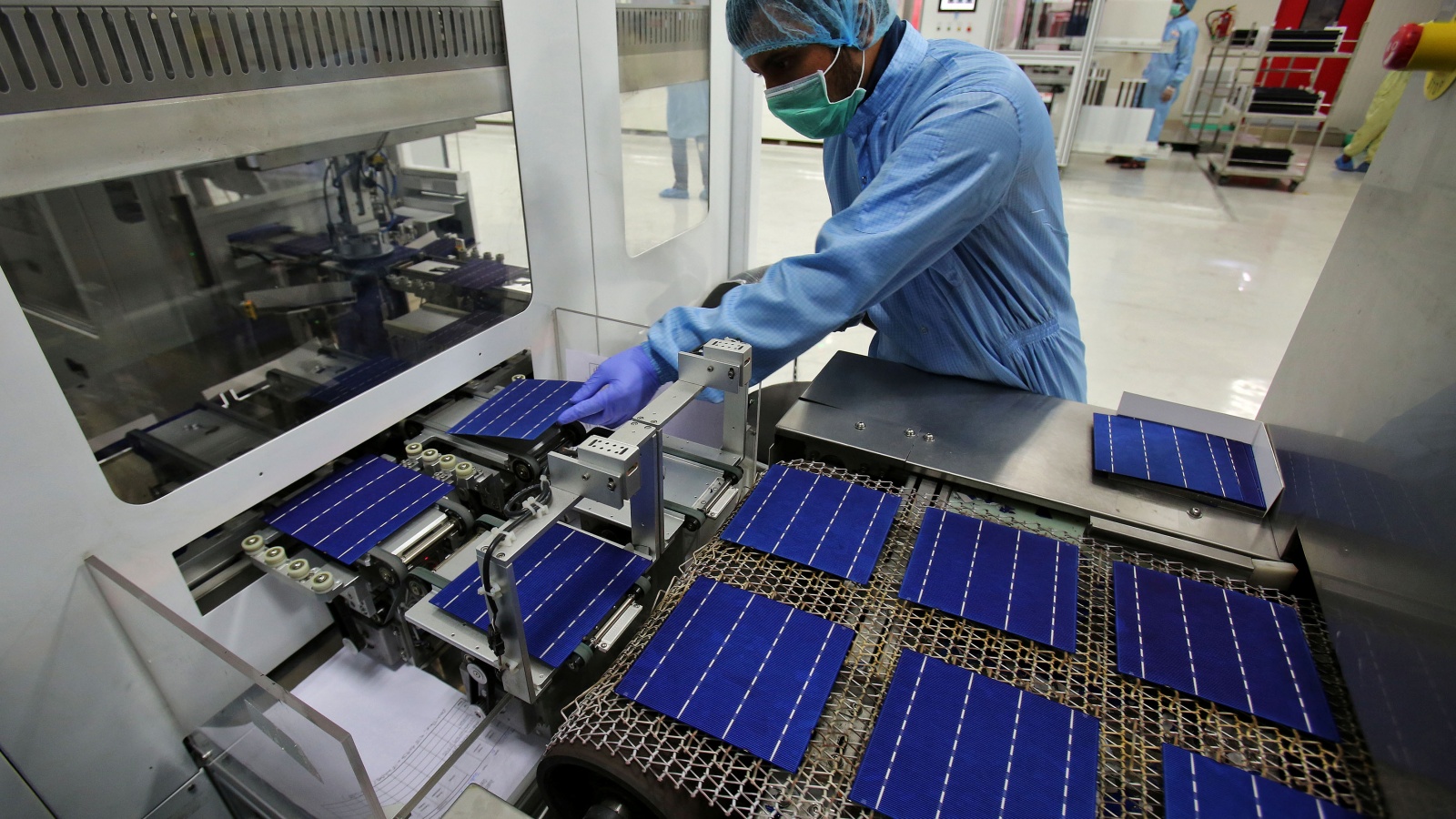As clean and sustainable energy solutions continues to surge in popularity, the solar industry has emerged as a dynamic and highly profitable field.
Join us as we explore the leading solar companies that are spearheading innovation, examine their notable achievements, and uncover the significant impact they have on the renewable energy landscape.
But that's not all. We will also guide you through the essential steps and considerations involved in starting your own solar company.
Whether you're a seasoned business professional or an aspiring entrepreneur looking to venture into the thriving solar sector, we've got you covered.
15 Solar Energy Companies

Tesla Energy
Tesla Energy is at the forefront of sustainable energy solutions, offering a range of products, including solar panels, Powerwall energy storage, and solar roof tiles.
Their integrated approach combines solar power generation, storage, and electric vehicle charging for a seamless renewable energy experience.
Sunrun
As a leading provider of residential solar energy, Sunrun specializes in customized solar installations, power purchase agreements (PPA), and solar lease options.
They focus on making solar accessible and affordable for homeowners, tailoring solutions to meet individual needs.
SunPower
SunPower is renowned for its high-efficiency solar panels and provides residential and commercial solar solutions.
Their advanced technology maximizes energy production while offering aesthetically pleasing designs.
Vivint Solar
Specializing in residential solar installations, Vivint Solar offers customized systems and comprehensive maintenance services.
From design to installation and ongoing monitoring, they provide a seamless experience for homeowners.
Canadian Solar
As a global solar panel manufacturer, Canadian Solar supplies modules for residential, commercial, and utility-scale projects.
They are known for their emphasis on product quality, reliability, and efficiency.
First Solar
First Solar leads the way in utility-scale solar projects, offering thin-film solar modules and turnkey solutions.
Their advanced technology ensures high performance even in diverse conditions.
JinkoSolar
JinkoSolar is a prominent solar panel manufacturer recognized for its high-quality and cost-effective photovoltaic modules.
They offer many different types of products for residential, commercial, and utility-scale applications.
Sunnova
Sunnova specializes in residential solar and energy storage services, providing solar leases, loans, and power purchase agreements.
Their expertise lies in customizing solar solutions to suit the unique needs of homeowners.
Hanwha Q Cells
Hanwha Q Cells is a leading solar module manufacturer offering solar panels for residential, commercial, and utility-scale installations.
Their products prioritize efficiency, reliability, and long-term performance.
LG Electronics
LG produces high-quality solar panels and energy storage systems for both residential and commercial applications.
Their products are known for their focus on efficiency, durability, and sleek design.
Enphase Energy
Enphase Energy specializes in microinverter systems that enhance the performance of solar installations.
Their technology optimizes energy production and enables individual panel monitoring for better efficiency.
SMA Solar Technology
SMA Solar Technology is a leading inverter manufacturer, providing innovative solutions for residential and commercial solar systems.
Their inverters ensure efficient energy conversion and reliable system performance.
Trina Solar
Trina Solar is a global provider of solar solutions, manufacturing high-quality solar panels for residential, commercial, and utility-scale projects.
Trina Solar places a strong emphasis on product quality and reliability.
REC Group
REC Group is renowned for its premium solar panels designed for residential, commercial, and industrial applications. Their products offer high efficiency, durability, and superior performance.
SolarEdge Technologies
SolarEdge Technologies offers comprehensive solutions for residential and commercial solar systems.
Their product portfolio includes inverters, power optimizers, and monitoring platforms to enhance energy production and system visibility.
What Does It Take To Start A Solar Company?

Starting a solar company requires careful planning and consideration of several factors. Here are some steps to help you begin:
- Research and Educate Yourself: Start by gaining knowledge about solar energy, industry trends, and the technical aspects of solar systems. Understand market demand and the regulatory environment to position yourself effectively.
- Develop a Comprehensive Business Plan: Create a detailed business plan encompassing your company's mission, target market, products and services, pricing strategies, marketing and sales approaches, operational structure, and financial projections. This plan will guide your business's growth.
- Identify Your Specialization: Determine the specific area within the solar industry you want to focus on. It could be residential or commercial installations, solar panel manufacturing, solar financing, energy storage, or related services. Choose a niche that matches your expertise and market demand.
- Establish Legal Structure and Obtain Licenses: Decide on your company's legal structure, such as a limited liability company (LLC) or sole proprietorship, or partnership. Research and comply with the licensing, permits, and certifications required in your jurisdiction to operate a solar business.
- Secure Funding: Determine your initial capital requirements for equipment, inventory, office space, marketing expenses, and personnel. Explore various funding options like self-funding, loans, grants, or seeking investors to finance your business.
- Build Industry Connections: Network and establish relationships with key stakeholders in the solar industry. Attend industry conferences, join trade associations, and collaborate with other professionals. Building partnerships and supplier relationships can provide valuable support for your business.
- Develop Your Product and Service Offering: Define the range of products and services your company will offer, such as solar panel installation, maintenance, and repairs, energy audits, system design, or solar financing options. Ensure that your offerings align with the needs and preferences of your target market.
- Set Up Efficient Operations: Acquire the necessary equipment, tools, and software systems to support your operations. Establish streamlined processes for sales, project management, procurement, and customer service.
- Create a Strong Brand and Marketing Strategy: Develop a compelling brand identity and create a marketing strategy to reach your target audience effectively. Utilize online and offline marketing channels, including a professional website, social media platforms, content marketing, and partnerships with local businesses.
- Stay Informed and Adapt: Keep up-to-date with industry advancements, changing regulations, and emerging technologies. Adapt your business strategy to remain competitive and aligned with the evolving solar energy landscape.
Final Thoughts
Starting a solar company can be an exciting and rewarding venture in the ever-expanding renewable energy sector.
By following the steps outlined above and conducting thorough research, you can position yourself for success in this dynamic industry.
Solar energy presents immense potential for addressing environmental concerns and providing sustainable solutions for individuals, businesses, and communities.

